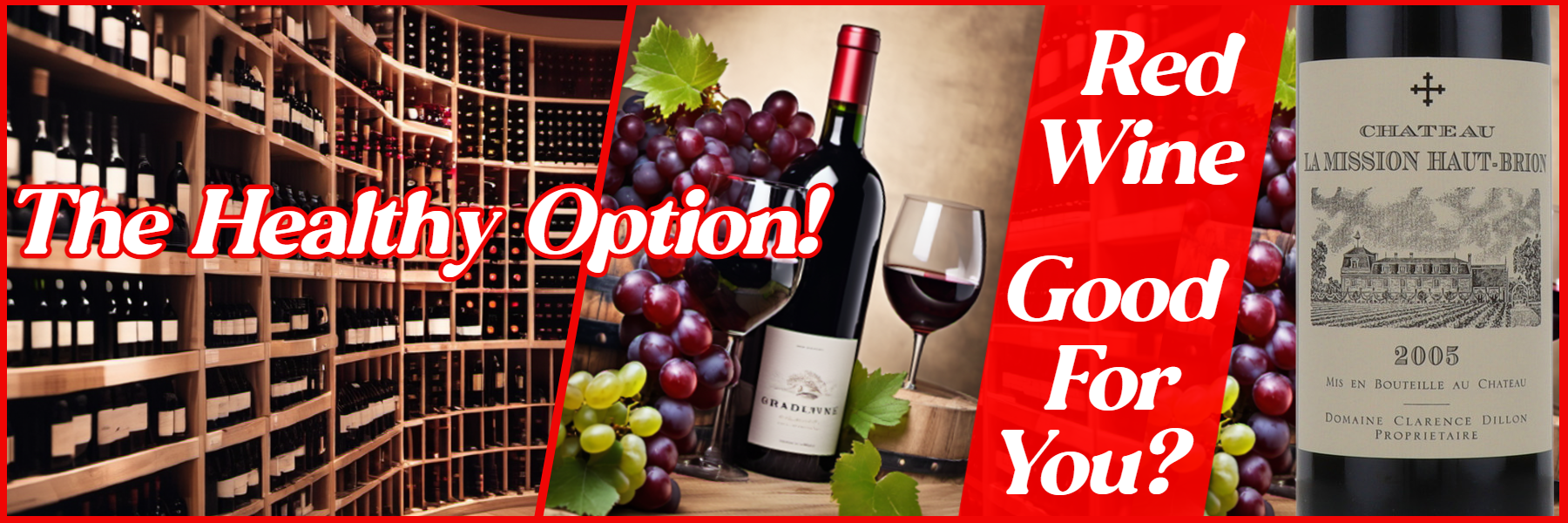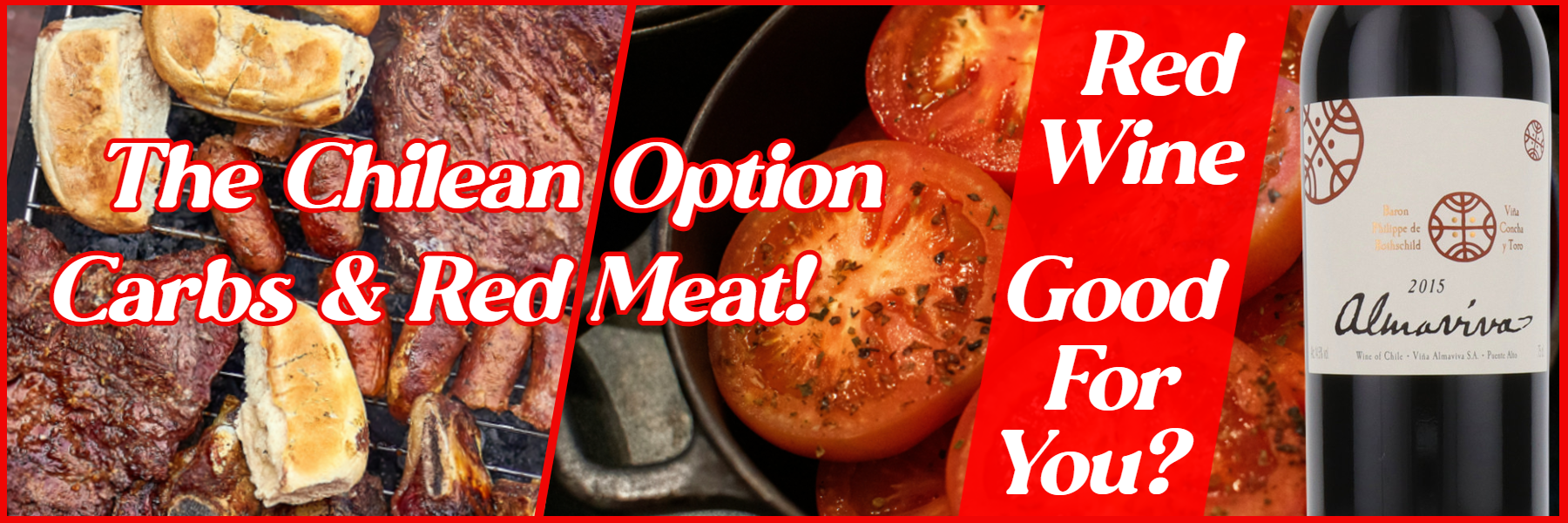If your doctor told you to lose some weight, would you be willing to reduce your wine consumption, or even consider giving up alcohol completely?
The Mediterranean diet, considered by many to be one of the healthiest, recommends drinking moderate amounts of red wine along with eating mostly whole foods including olive oil, fresh fruits, vegetables (leafy greens, onions, garlic, tomatoes, and peppers), whole grains (for bread, rice & pasta), pulses (beans & legumes [lentils, peas, chickpeas]), nuts, eggs and herbs whilst avoiding ultra-processed foods and refined carbs/sugars. For protein, fish, seafood and poultry are considered to be OK in limited quantities, but red meat and dairy products (cheese & yoghurt) need to be eaten only on occasion. You want more protein? Have an egg, or an avocado.
Do you agree, or are you in tune with the new "health police" warning which wants to stop you drinking wine? That's absolutely ALL wine. Not even a single drop must pass your lips. Killjoys!
Now, if you look up "Dr Google", it's amazing what you can find online. Some of it might well be true, but you can't believe everything you read. It used to just be articles in the newspapers influencing people but, now, it's more likely to be social media posts, hackers and "AI" systems producing "deep fakes" to lead you down the rabbit hole of misleading health information.
If you happen to meet a certain Bugs Bunny this Easter, ask him for a recommended wine to match with carrots, or the name of a good Doctor to sort out your vision problems. If you see Elmer Fudd with a gun... run for it!
Personally, I admit to enjoying wine with food; not necessarily every day, but when I feel like it. I have no problem putting a part full bottle to one side for another day. A 100 point La Mission Haut-Brion might be harder to resist, but I'm sure I could do it. It would be very annoying to let the wine oxidise by leaving the bottle open for too long.
Red wine, with all those lovely polyphenols from the grape skins, has been shown to have health-giving properties. You won't live for a thousand years, or thrash Usain Bolt in the 100m sprint, but you might just finish the race without being too embarrassed. Actually, you would be, so you might as well finish the bottle and let him do all the running.
For the technically minded, here's what I found out about the benefits of red wine consumption:
Red wine is often considered a healthy component of the Mediterranean diet due to several reasons:
Antioxidants: Red wine contains various antioxidants, particularly resveratrol, flavonoids, and polyphenols. These compounds have been associated with numerous health benefits, including reducing inflammation and protecting cells from damage caused by free radicals.
Heart health: Moderate consumption of red wine has been linked to a reduced risk of heart disease. The antioxidants in red wine, particularly resveratrol, may help improve cardiovascular health by increasing high-density lipoprotein (HDL) cholesterol (the "good" cholesterol) and protecting against artery damage.
Reduced risk of certain diseases: Studies have suggested that moderate red wine consumption may lower the risk of certain diseases, including type 2 diabetes, Alzheimer's disease, and certain types of cancer, although more research is needed in these areas.
Mediterranean lifestyle: Red wine is a traditional part of the Mediterranean diet, which emphasises whole grains, fruits, vegetables, fish, olive oil, and moderate consumption of wine. This diet pattern has been associated with numerous health benefits, including a lower risk of chronic diseases and overall mortality.
Relaxation and socialisation: Enjoying red wine in moderation as part of a meal can contribute to relaxation and socialisation, both of which are important aspects of overall well-being. The Mediterranean lifestyle places importance on enjoying meals with family and friends, which can have positive effects on mental health and stress reduction.
It's important to note that while moderate red wine consumption may offer health benefits, excessive alcohol intake can have adverse effects on health. Moderation is key, and individuals should consult with their doctor regarding alcohol consumption, especially if they have any pre-existing health conditions or concerns.
If you prefer to consume white wines, try one with a proportion of "skin contact" in its winemaking process, or go fully "natural" with an "orange wine". It's still alcohol, has lots of calories and will make you fat if you drink too much. Swings and roundabouts?
What is not known is whether particular types of wines made close to the Mediterranean itself offer any further health benefits when compared to wines made without a maritime influence. It is nice to live by the seaside, so who knows if it applies to vines? They've got feelings, too... well someone on TikTok said so, so it must be true.
Is a Niellucciu from the island of Corsica, or a Cannonau from Sardinia better for you than, for example, a land-locked Burgundian Pinot Noir, or a German Dornfelder? The local, regional foods are certainly very different, so perhaps there's some truth in this?
A red Mourvedre from Bandol, which is reputed to not ripen properly unless it's grown within sight of the Med, needs very specific conditions in which to thrive. But would you restrict yourself to just drinking these wines with a typical Mediterranean meal? I think you'd be much poorer, tasting wise, if you did do this. Bring on all kinds of exotic red wines, as far as I'm concerned. The more variety, the better.
Going slightly off at a tangent, there was once a newspaper article featuring Cabernet Sauvignon from Chile. So, what's unusual about that? The percentage proportion of resveratrol was listed for various brands and I noticed, when visiting a local supermarket at the time, that the shelves were bare of only the wines at the top of the list. All other Chilean Cabernet stocked hadn't been bought by the store's customers. The health-giving property of these "wonder wines"? A minute reduction in the chance of getting certain types of cancer. ALL the thick-skinned, Cabernet Sauvignon based wines in the store (whether Chilean, or not) had a higher portion of resveratrol in their grapes' skins when compared to other, thin-skinned grape varieties, but they weren't sold in such enormous quantities. The drinkers concerned were more likely to over indulge and cause themselves harm, rather than doing any good by consuming a particular bottle.
The alternative to the "Mediterranean Diet"? Lots of red meat, dairy and carbs. Plus wine, of course. A tasty treat.
I hear it goes really well with RABBIT...




